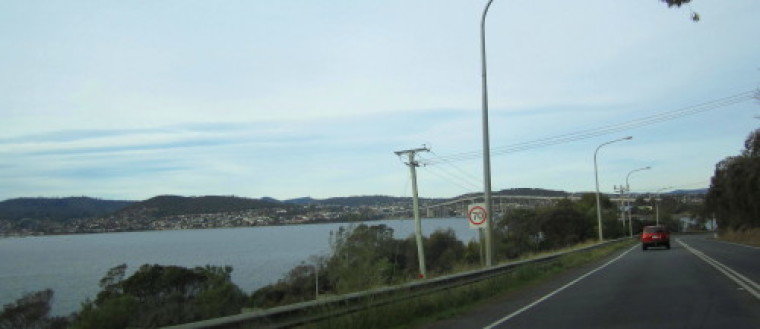
As the Northern Territory had unrestricted speed on their highways, not unlike the German autobahns, these drivers took to their task with enthusiasm, and all was well, until of course, someone was killed in a motor vehicle accident.
Even now, forty years later, I can still recall the newspaper headlines, television news and radio talk back as to the furore all this caused – unrestricted speed – through the Northern Territory's thousands upon thousands of kilometres of 'flat nothingness'.
A recent article in the Sydney Morning Herald raised this issue of unrestricted speed once again, this time from Germany's Autobahn network. (www.smh.com.au)
Michael Birnbaum's article in the "World News" section, was titled "(German) MP's spilt over speed limits for Autobahns" and in this article he cited some interesting statistics.
"For every billion miles driven on German roads, nine people were killed in accidents in 2011, the same as in Australia. That compares with 10.9 for the US and 6.3 for Britain."
The British Motorway network is particularly well known to Australians as many of us who have travelled to Britain are well aware of these networks and found them to be beneficial and extremely handy.
Although Britain does not have Australia's vast distances, their cities are compact geographically, and the distances between major metropolitan areas are connected by these convenient motor ways. In spite of the occasional news report of pile-ups on the UK motorway system largely due to fog, UK has the lowest death rate.
The US on the other hand has the highest death rate between these four comparable nations – US, UK, Germany, Australia. The US death rate is a statistical margin of 2 above that of both Germany and Australia and whopping 5 above that of Britain.
There are a number of contributing factors in the US figure which includes their vast distances (as in Australia), the nature of their freeway systems whereby one could stay forever on a freeway and drive continuously around and around and around, such is the freeway's psychology (not unlike the wild west ).
Australia
Australia on the other hand has for the most part restricted speed limits and the road system apart from, yes admittedly major sections, between the capitol cities, are not autobahns or freeways or motor ways. They are in many instances two lanes roads, one lane for traffic going in either direction.
A US friend of ours visiting Australia flew into Melbourne (a city not unlike many others in the world – traffic chaos) decided they would take a road trip to Sydney, rather than fly. From what we understood he consulted his hosts and others about such a road trip, but they were on different trajectories.
He was thinking the coastal highway through Gippsland, Sale, Bairnsdale, Merimbula, Bega, Narooma, Moruya, Batemans Bay, Nowra, Wollongong, Sydney. Everyone else they spoke with assumed they were taking the Hume Highway (mostly double lanes) and many sections are freeways. This route is through Wodonga and Albury.
Our friends eventually arrived in Sydney not a little frazzled and road exhausted with the entire trip almost two lane highway roads. They could not get over their friends in Melbourne telling them many porkies about the so called remarkable freeway conditions between Melbourne and Sydney.
Meanwhile the German autobahn system has an historic factor to it. Although Hitler and the Nazi's received the accolades for their remarkable autobahn infrastructure, the designs had been drafted before the Nazi's came to power. The Nazi's put it into fast track cutting red tape and forged ahead thinking 'military' rather than business and civilian.
When war came, autobahn speed was restricted to 80 kilometres an hour for fuel conversation and many of their trucks could not have travelled much more than that in any case.
With the post war boom from 1953, the autobahn system came into its own and speed was left unrestricted. This is engrained into the German heart and to change this is deemed something akin to political suicide. ''There won't be a general speed limit on Germany's highways under my rule,'' Transport Minister Peter Ramsauer said.
Parliament is scheduled to discuss this in September. We wait with baited breath. Clearly the statistical road death rate is not the central issue, rather it is the environment. Anyone who has experienced the evangelical church in Germany with its strong tradition in evangelism knows of the very effective use of the autobahn system in Christian ministry.
Dr Mark Tronson is a Baptist minister (retired) who served as the Australian cricket team chaplain for 17 years (2000 ret) and established Life After Cricket in 2001. He was recognised by the Olympic Ministry Medal in 2009 presented by Carl Lewis Olympian of the Century. He has written 24 books, and enjoys writing. He is married to Delma, with four adult children and grand-children.
Mark Tronson's archive of articles can be viewed at www.pressserviceinternational.org/mark-tronson.html